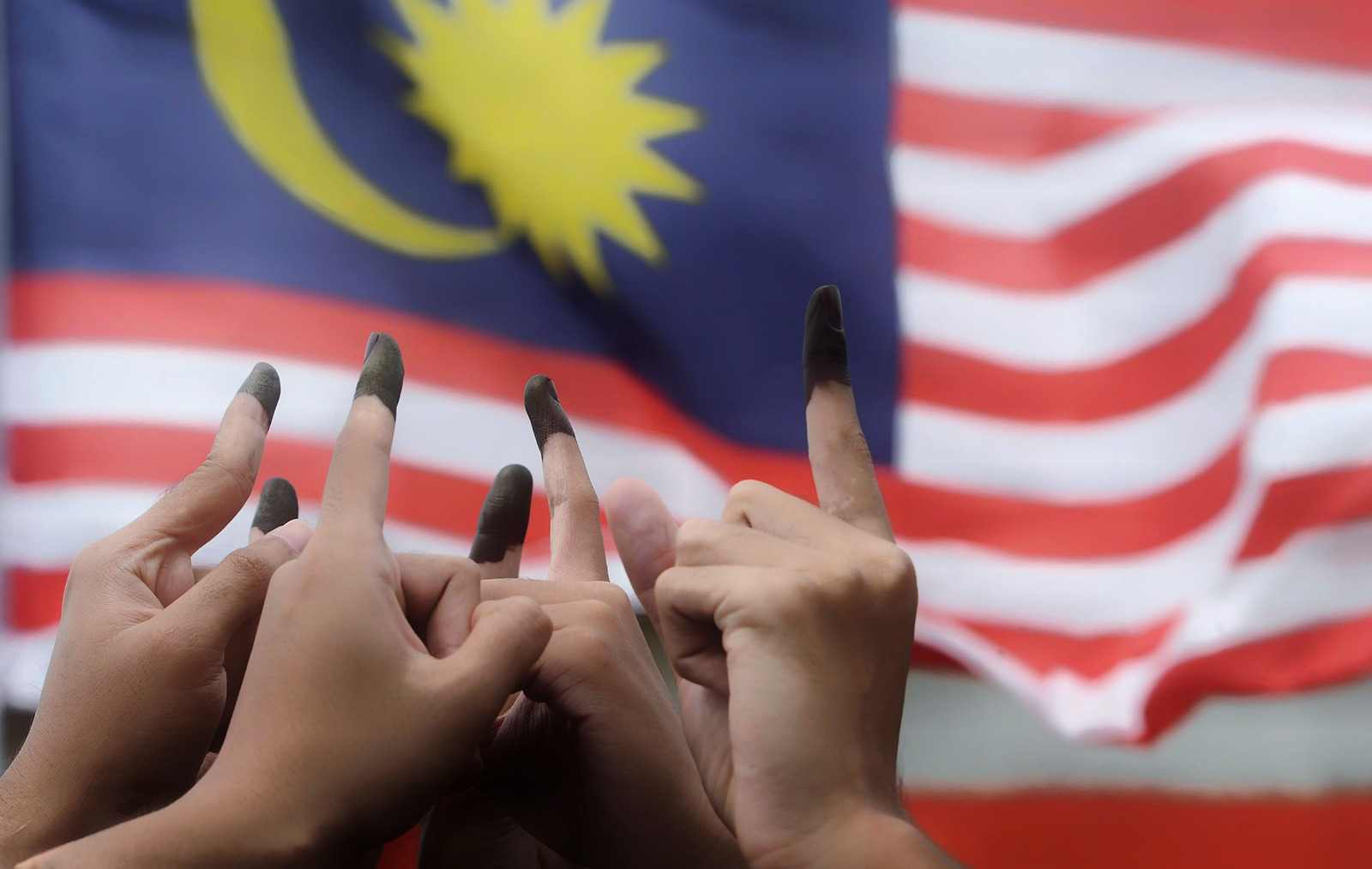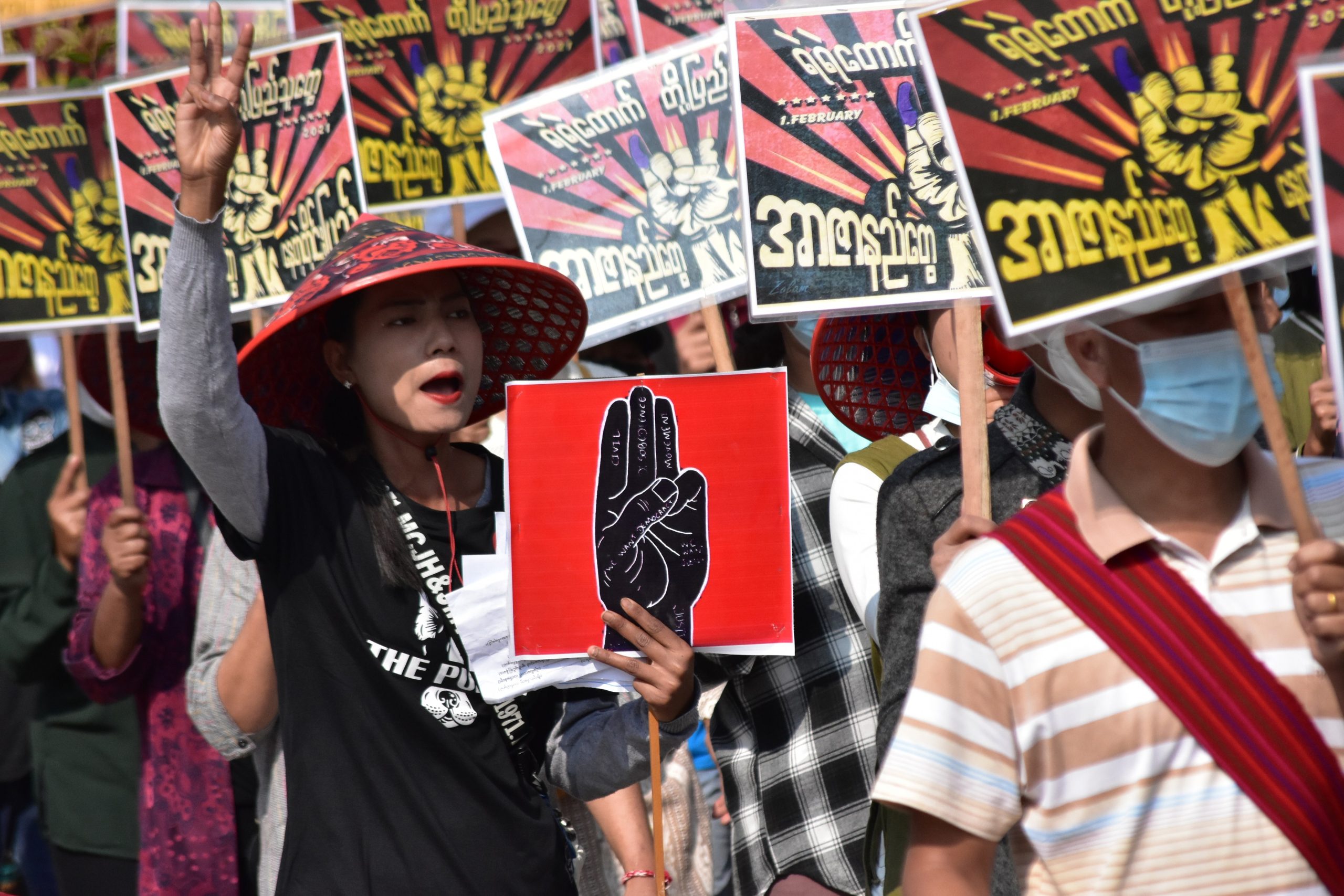GGR Issue Briefings / Working Papers
Malaysia State Election 2023: Prospects for the “Unity Government”
AbstractSince the last general election (GE15) in November 2022, the political landscape in Malaysia has shifted significantly, especially concerning the formation of new political alliances such as the Pakatan Harapan-Barisan Nasional (PHBN) coalition. Dubbed the “unity government,” the alliance led by Anwar Ibrahim however did not gain solid support from Malay voters. The result of the Malaysian State Election held in August 2023 further affirmed this scenario when PHBN suffered a moral defeat to the Perikatan Nasional (PN) coalition. It remains to be seen whether the government will become more conservative to appease Malay voters.
Problems Facing U.S. Disinformation Measures
AbstractCurrently, criticism of disinformation measures is spreading, centering on the United States House Judiciary Committee and involving right-wing media, organizations, and critics. Requests for information, congressional subpoenas, and charges have been filed against think tanks, universities, and other research institutions, as well as individual experts. The claim is that the U.S. government, either directly or through research institutions, has been suppressing conservative speech by censoring social media platforms. On July 4, 2023, a federal district court recognized government censorship and ordered a ban on contact between the government and related agencies and social networking platforms and research institutions. The court ordered that the government and related agencies be prohibited from contacting social media platforms and research institutes. Although the order was immediately stayed and an appeal is underway, the series of events has led some social media platforms and researchers to become more cautious in their efforts to combat disinformation. This problem can be attributed to a failure to follow the basic principle that disinformation is more often carried out by domestic actors and that countermeasures must also prioritize domestic approaches.
The Rise of ESG Investment and Its Controversial Reception in the United States: Implications for Global Governance
AbstractSince the adoption of the Sustainable Development Goals in 2015, Environment, Social, and Corporate Governance (ESG) investment has gained popularity. It has attracted attention from various stakeholders, including those with a social mission of realizing a sustainable society, and also risk-sensitive investors, as well as academia. However, there is a growing anti-ESG movement in the United States, with Republican lawmakers attempting to impede ESG-related financial risk management and hinder the growth of ESG investment. This article aims to explore the background and rationale behind this conflict surrounding ESG investment in the United States and its implications for global governance.
Problems with Hong Kongers’ “Nationality” in Residency Registration and Renewal of Hong Kong SAR Passport in Japan
AbstractHong Kongers living in Japan face unique challenges when it comes to residency registration and passport renewal. The confusion surrounding their nationality status, particularly the use of "China" instead of "Hong Kong" in official documents, creates practical difficulties and safety concerns for Hong Kongers in Japan. This paper highlights the legal and political differences between Hong Kong and China, the unique visa arrangements and exemptions enjoyed by Hong Kong SAR passport holders, as well as the implications of the Hong Kong National Security Law for Hong Kongers living in Japan. Without asking for special treatment, it is nonetheless important to consider the human rights of Hong Kongers and to provide better assistance, support, and protection for this community at risk.
“Democracy” in Unrecognized States: Its Variations and Determinants
AbstractThe term "unrecognized states" refers to entities that have declared independence but lack international recognition while operating independently from their legal parent state. In recent years, with Russia's invasions of Georgia and Ukraine, unrecognized states and similar entities have emerged, drawing attention to their roles. Many of these existing entities conduct competitive elections, with some even experiencing change of government through elections. However, most of them rely on support from authoritarian states and face severe economic and societal conditions that hinder democratization. Consequently, some studies suggest the existence of unique factors influencing democratization in unrecognized states. According to measures of democracy, however, not all unrecognized states have fully democratized, as there are variations in the quality of democratization among them. This paper reviews the current political regimes in unrecognized states, along with existing research in the field, and identifies the limitations, while proposing new possibilities for hypotheses.
Implementation of the ASEAN Five-Point Consensus Has Failed
AbstractThe Myanmar coup leader and ASEAN leaders agreed on the five-point consensus, rates of deaths, detainees, and internally displaced people. However, the number of conflicts between the Myanmar military, ethnic armed groups, and the People’s Defense Force is rising. In addition, some ASEAN leaders have stated that the process of agreement implementation by the Myanmar military is a failure because the military is still trying to prevent humanitarian aid from reaching the people. Therefore, a number of international organizations have raised their voice to assist those in urgent need. More than two years since the agreement, it is time for ASEAN leaders to review the implementation by the military and take meaningful action, respecting the interests of the people of Myanmar.
2023 Thai General Election: The Rise of the Opposition
AbstractThailand’s general election will be held on May 14. It is time for the Thai people to decide whether they want to stay with the pro-military government led by coup maker General Prayut Chan-o-cha or go for a different way. Despite the undemocratic constitution that favors pro-military parties, the recent trends suggest that the two main opposition parties, the Pheu Thai Party and the Move Forward Party, are likely to win by a landslide, which could result in a pro-democracy coalition government. For the Pheu Thai Party, past records and recent polls have proven that the party is invincible as it wins the most parliamentary seats in every general election and is likely to win again in the upcoming election. On the other hand, the popularity of the Move Forward Party and its leader, Pita Limjaroenrat, has skyrocketed thanks to a clear political stance, impressive policies that hope to bring about change, and great performance in policy debates. For these reasons, we could see a new government from the pro-democracy opposition, which would save Thailand from the legacy of the military regime.
What Chile’s Failed New Constitution Can Teach Us about Democratic Processes and Failed Expectations
AbstractIn September 2022, a large majority of 62% of Chile’s voters rejected the new proposal for their constitution that was drafted over the course of more than a year and limited basic elements of liberal democracy such as separation of powers with the highest participation in recent history. In light of a new referendum, set to be held in November 2023, as well as many other countries considering changes to their respective constitutions, this paper aims to answer the following two questions. First: What lessons can be drawn from the rise and fall of this constitutional process? And second: What are the main reasons for its dramatic rejection? To answer those questions, this text first provides an overview of the narratives shared by the public. In the second part, the author conducts a thorough analysis of the reasons behind the failure of the proposal, namely poor communication, loss of public trust, as well as failed expectations towards the final text.
The Present and Future of Displaced Ukrainians: Rethinking Refugee Policies in Japan
AbstractIs the refugee system of Japan sufficient in coping with the internationally displaced persons fleeing Ukraine? This issue briefing reviews the current progress and future obstacles for the Japanese government in accommodating Ukrainian refugees since the beginning of the invasion by Russia in 2022. It traces the causes of the problems in the context of Japan’s assimilationist approach toward migrants and refugees. The author highlights potential negative impacts that this approach may bring to both refugees and the Japanese people while suggesting an optimistic path forward based on Japanese public attitudes toward migrants.
The Long Journey of Civil Society in Myanmar
AbstractMyanmar's civil society continues to resist the military junta established by the military coup that took place on February 1, 2021. Civil society, which originated in the late colonial period, has played an important role in the transition to democracy. Although its activities over the past few years have faced some challenges, civil society has continued to side with the people and has been active since the coup in areas such as access to information at home and abroad, violence prevention, and humanitarian assistance. This paper argues that civil society has played a crucial role in support of Myanmar's development and democratic values.










